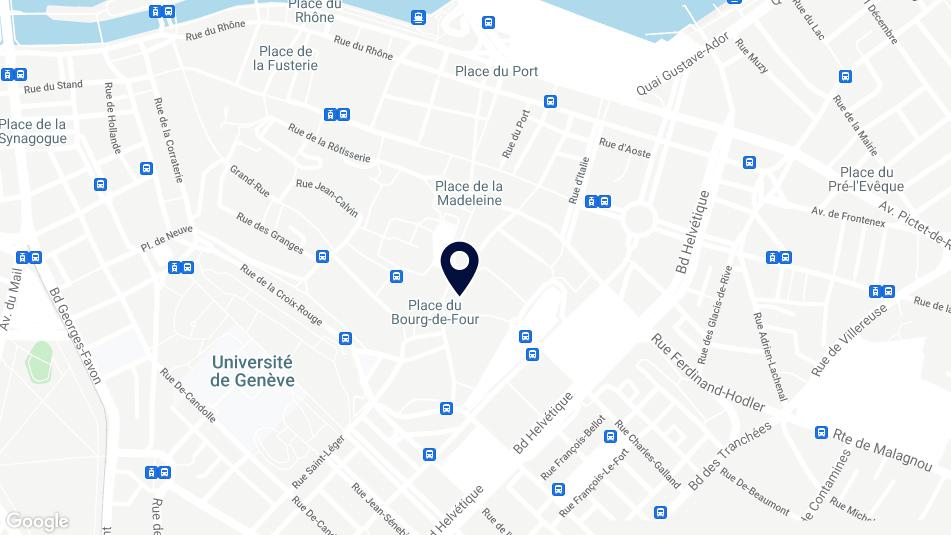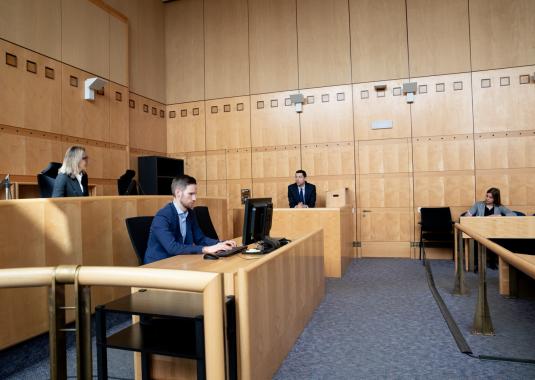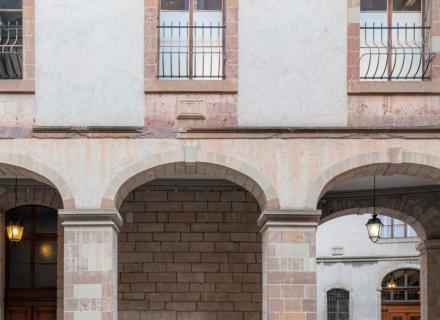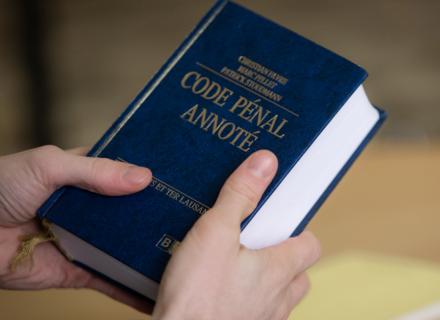Contacts
Address
Contact details
Mailing address
Chambre pénale d'appel et de révision
Case postale 3108
1211 Genève 3
Competences
The Chambre pénale d'appel et de révision is the cantonal authority competent to rule on appeals against first instance judgements (judgements of the Tribunal de police, the Tribunal correctionnel, the Tribunal criminel and the Tribunal des mineurs) which have terminated all or part of the proceedings, as well as on applications for review.
In addition, it exercises the powers conferred on it by the Criminal procedure code (CrimPC) and the Juvenile Criminal Procedure Code (PPMin).
Organization
The Chambre pénale d'appel et de révision sits in a formation of 3 tenured judges.
It also includes:
- 4 assessor judges when ruling on appeal or reviewing judgments of the Tribunal criminel
- 2 assessor judges, i.e. a doctor and an education specialist, when ruling on appeals brought against the judgments of the Tribunal des mineurs
Proceeding
Appeal proceeding
Step 1: bring the case before the Chambre pénale d'appel et de révision
The appellant must submit a written notice of intention to appeal to the Tribunal pénal within 10 days of the issuing of the judgment. The appellant may also do so orally immediately after reading the conclusions,a mention thereof shall be made in the minutes.
The notice of intention of appeal can be either submitted at the reception desk of the Tribunal pénal or at the Greffe universel. It must be written in French and signed.
The appellant must then submit a written appeal petition to the Chambre pénale d'appel et de révision within 20 days of notification of the judgment stating the grounds.
When the judgment is notified directly with a statement of the grounds, a notice of intention to appeal is not necessary. It is sufficient to send an appeal petition to the Chambre pénale d'appel et de révision within 20 days of notification of the judgment.
The appeal petition can be either submitted at the reception desk of the Chamber or at the Greffe universel. It must be written in French and signed.
Within 20 days of receipt of the appeal petition, the other parties may, in writing, contest the admissibility of the appeal (justified request for a no-proceedings decision).
Within the same 20-day period, parties who have not appealed may still do so, under certain conditions, in response to the main appeal (cross-appeal).
The appeal procedure is in principle oral.
Hearings are public, with the exception of deliberations.
The public debates are accessible to all, though the president may forbid access to the hearing to minors. It is therefore suggested that any minor wishing to attend a hearing should ensure that he/she is authorised to do so, either by letter or on the day of the hearing, beforehand.
The president may partially restrict the public nature of the hearing or order the hearing to be held in closed session if public security and public order or the interests worthy of protection of a person taking part in the proceedings, in particular those of the victim, so require or in the event of a large number of participants.
In certain cases and under certain conditions, the appeal proceedings may be conducted in writing.
For more information, see art. 406 CrimPC.
Step 2: notice of the judgment
The Chambre pénale d'appel et de révision delivers a judgment stating the grounds that can be contested by way of a criminal appeal for criminal matters before the Federal Supreme Court.
Review proceedings
Any person who is adversely affected by a legally binding final judgment, a summary penalty order, a subsequent judicial decision or a decision in separate proceedings on measures may request a review of the case.
For more information, see art. 410 ss CrimPC.
Application for review
Substantiated applications for review must be filed within 90 days from the date on which the person concerned became aware of a decision that could lead to a review of the decision in question. In other cases, there is no time limit.
The review proceedings are written.
Questions/answers
Yes, there is an obligation to appear, under penalty of being punished with a fine or being brought by the police before the competent authority.
If the accused is an appellant and does not appear at the hearing, without a valid excuse, it will be considered that he/she has waived his/her right to appeal.
The accused may, on request, be authorised to be represented by a legal agent.
The private claimant may, upon request, be allowed not to appear at the hearing.
If the private claimant is an appellant and does not appear at the hearing, it will be considered that he/she has waived his/her right to appeal.
He/she may, on request, be authorised to be represented by a legal agent.
Yes, by immediately informing the authority of the reasons for the impediment (travel abroad, illness, hospitalisation, etc.) and presenting any supporting documents (copy of airline ticket, hotel reservation, medical certificate, etc.).
Victims within the meaning of the law may be accompanied by a person of trust, even if the hearing takes place behind closed doors.
In case of a closed court session, the accused and the private claimant may also be accompanied by up to 3 persons of trust.
The same applies to witnesses, private claimants or accused persons who are granted protective measures.
The person of trust must not be likely to be heard as a witness in the same proceedings.
An accused minor and his/her legal representatives are required to appear personally at the proceedings unless they have been exempted from doing so.
The child victim must be accompanied or represented by at least one of his/her parents or by a guardian.
The witness minor child must be accompanied by at least one of his/her parents.
- In civil proceedings, hearings are public with 3 exceptions: hearings pertaining to family law are not public; the court may order that hearings be held in a closed session when a private or public interest requires it; hearings in conciliation proceedings are never public.
- In criminal proceedings, the hearings of the Chambre pénale d'appel et de révision are in principle public while those of the Chambre pénale de recours are not.
The costs of the proceedings are borne by the parties insofar as they have won or failed (lost the case). The party whose appeal is inadmissible or who withdraws the appeal is deemed to have lost the case.






